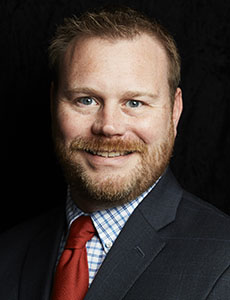Reducing Claims Costs
Mental Health Support Could Cut Claims

The mention of “post-traumatic stress disorder” conjures the experiences of soldiers, first responders and others that encounter extreme danger and strife and suffer lingering psychological effects.
But employers in every field should be aware of the potential for mental health issues in the workplace after a traumatic event; and not necessarily a three-alarm fire or a shooting.
“Unexpected employee death, armed robberies, downsizing, industrial accidents … these are all workplace incidents that can cause mental stress,” said Jeff Gorter, clinical director, EAP relations, for R3 Continuum, which provides workplace crisis readiness and response services.
One of those services is psychological first aid, or PFA, often contracted as part of employers’ Employee Assistance Programs.
In PFA, also called “disruptive event management,” qualified mental health professionals arrive on site immediately after an incident is reported, spending anywhere from two to six hours in one-on-one counseling with employees. They may extend those services an extra day, depending on the severity of the event, but usually one day suffices.
The key thing to understand about PFA, Gorter said, is that it is not therapy.
“We’re not coming in with our mobile couches asking them to tell us about their mothers,” he said.
“We’re just helping them to interpret their reactions, whether its distraction, anxiety, fear, sadness. We help them understand these are normal and temporary responses to this event,” he said.
“We’re teaching them basic coping skills.”
One of R3’s clients —a dollar store susceptible to robberies—decided to measure the impact of PFA on its workforce.
Getting Ahead of Mental Health Claims
Before the dollar store started to offer post-event counseling, about 50 percent of affected workers were likely to quit their jobs after a traumatic event. After implementing PFA, the store was able to retain about 90 percent of its employees that suffered such stress, Gorter said.
It also saw a 25 percent reduction in mental health workers’ comp claims stemming from an incident. Those that were filed were 15 percent less costly.
In addition to helping employees process challenging emotions, on-site counseling also reduces the likelihood of a mental health claim by removing the adversarial element between worker and employer.
If an employer pushes an employee to return to work quickly without offering any support for his or her mental well-being, that employee is more likely to feel mistreated and could file a workers’ comp claim as a sort of retaliatory measure, insisting that his employer pay attention.
“We want to take care of people, but also get them back to work sooner, reduce attrition, improve morale, and reduce the number and severity of workers’ comp claims related to mental or behavioral health issues.” — Jeff Gorter, clinical director, EAP relations, R3 Continuum
Studies also show that employees who don’t receive help after a jarring workplace incident are more likely to develop hypertension, coronary heart disease and metabolic syndrome, according to an article published by the American Psychological Association, “Work-Related Trauma, PTSD, and Workers Compensation Legislation: Implications for Practice and Policy.”
The article states that those conditions could lead to “significant increases in direct medical costs and indirect costs such as absenteeism, on-the-job injuries, and short- and long-term disability.
The Substance Abuse and Mental Health Services Administration estimated in 2008 that it costs employers 25 to 200 percent of an employee’s salary to train and replace a worker. As such, there are substantial costs to employers of untreated work-related mental health injuries,” the article read.
“We’re balancing both humanitarian and organizational goals,” Gorter said.
“We want to take care of people, but also get them back to work sooner, reduce attrition, improve morale, and reduce the number and severity of workers’ comp claims related to mental or behavioral health issues.”
Psychological first aid services were first developed by the National Center for PTSD as a response to major events like terrorism attacks and natural disasters, but they help employers in any industry retain workers and reduce workers’ comp costs after an unsettling event.










